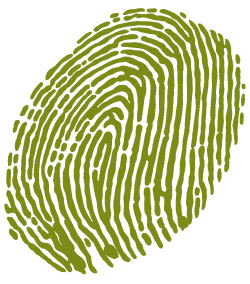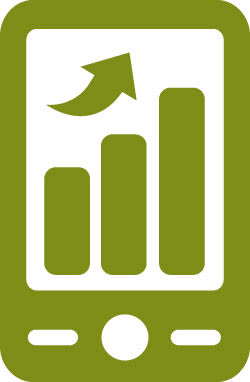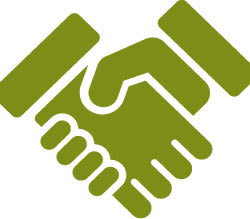Small Business Guide to Accountants
If you don’t know the difference between a C-Corp and an LLC, it’s time to contact an expert.
Whether you’re a numbers person or not, handling your business’s accounting tasks can be daunting.
Some small business owners may try to cut corners, thinking they can handle payroll and taxes on their own. They may have good intentions to save money, but the damage could be seen later, if they’re audited by the Internal Revenue Service or are unprepared financially to handle growth or a slowdown in business.
Accountants can provide valuable guidance, acting as a strategic adviser to start a business and set up its structure (such as an S-Corp, C-Corp, sole proprietorship, partnership or LLC), create budgets, establish financial goals and make decisions to expand your operations.
“Small businesses tend to think day to day,” says Doug Scott, a business professor at State College of Florida. “You’re looking at shelves, thinking, ‘That’s empty, I need to get that ordered. How much money do I have in the checkbook?’ That’s pretty much the extent of their accounting because they don’t understand [it].”
Even if you do understand accounting, spending your time on the books may take you away from more pressing needs of business development. A small business owner may be better off delegating accounting duties, says Nick Mastracchio, a certified public accountant and associate professor at USF Sarasota-Manatee.
Working with an accountant also can ensure that you aren’t digging into money that is owed to the government, such as sales taxes, and that the business is in compliance with tax laws, healthcare reform and other legislation that can impact your financial picture. If you don’t comply, the business could be fined.
The amount you’ll pay for accounting assistance depends on your needs and the type of professional you use. It could range from $15 an hour on the low end to hire a bookkeeper, to working with a partner at an accounting firm whose rate may be $200 an hour or more.
Using an accountant can help you create a paper trail and give greater peace of mind when it comes to a big fear: being audited by the IRS.
“If you have a good CPA, that is not an issue,” Scott says. “If the paper trails are there, you’ve got nothing to worry about. That’s priceless.”
TYPES OF ACCOUNTING DUTIES
What they do: Record financial transactions, update income statements, make sure financial records are accurate, and make regular payments such as bills and payroll. Some bookkeepers are on staff while others work on a part-time basis; others are provided by an accounting firm to handle bookkeeping duties for clients.
What to look for: A college degree may not be essential, but a bookkeeper needs to have math and computer skills, as well as knowledge of spreadsheets and bookkeeping software (such as QuickBooks), according to the U.S. Bureau of Labor Statistics (BLS).
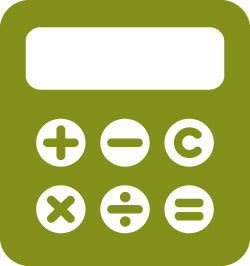
What they do: Prepare, organize and examine financial records. Make sure that financial records are accurate, and compute taxes and ensure they are paid on time. Provide guidance to help organizations run more efficiently by creating budgets, setting up financial goals and recommending ways to enhance revenues, reduce costs and improve profits, according to the BLS. They can assist on big decisions, such as applying for a loan.
What to look for: A bachelor’s degree in accounting, at least (some CPAs have an M.B.A. or a master’s in accounting), and a CPA license from the American Institute of Certified Public Accountants, whose exams all states use for licensing.
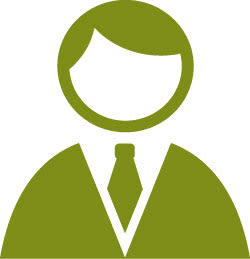
What they do: Look at revenue, sales and data trends to analyze costs within a company, which can help with decisions about production and purchasing. Their work is shared internally, not publicly, according to the BLS. Also known as a cost accountant or managerial accountant. A CMA often assists companies in industries such as manufacturing, says SCF’s Scott.
What to look for: A bachelor’s degree, at least, and the CMA certification from the Institute of Certified Management Accountants.
What they do: Investigate white-collar crimes, such as embezzlement and securities fraud, as well as bankruptcies and contract disputes, according to the BLS. Forensic accountants can be asked to provide investigative accounting by looking into illegal activities, or litigation support on a specific case, often related to the calculation or estimation of economic damages and related issues, according to the American College of Forensic Examiners International.
What to look for: A bachelor’s degree, at least, and Certified Forensic Accountant designation from the American College of Forensic Examiners International.
What they do: Employed by federal, state and local governments to audit businesses and individuals “whose activities are subject to government regulations or taxation,” according to the BLS.
What to look for: A bachelor’s degree in accounting, at a minimum.
What they do: Prepare financial reports, such as balance sheets and income statements. Controllers also provide analyses of future earnings or expenses and prepare reports required by government agencies that regulate businesses, according to the BLS. Controllers (also called comptrollers) typically are staff positions at larger companies, Scott says.
What to look for: A bachelor’s degree in accounting, at least (most companies seek those with master’s degrees).
What they do: Check for mismanagement of an organization’s funds and find ways to improve a business’s processes to identify and eliminate waste and fraud, according to the BLS.
What to look for: A bachelor’s degree in accounting or internal auditing, at a minimum, and the Certified Internal Auditor certification, offered by the Institute of Internal Auditors.
Tips For Hiring Your Accounting Professional
Qualifications
In addition to an accountant’s college background, find out when she earned specific licenses, such as a CPA license from Florida. If someone says he is a public accountant, ask if he holds a CPA license, which our experts say most public accountants should hold these days. Ask the firm if they can provide a peer review, which was required as part of the CPA licensing process, for you to review and see what others say about their operations and knowledge, USF’s Mastracchio says. The American Institute of Certified Public Accountants requires member firms to undergo a peer review every three years.
Recommendations
Ask your banker, attorney or other business owners for referrals. Using an accountant that those advisers know can be helpful when they all need to work together on decisions, such as obtaining a loan to grow your business.
Industry focus
Some firms may specialize in assisting companies in specific industries. For example, if you are in construction or another industry required to comply with Occupational Safety and Health Administration (OSHA) regulations, an accountant with that knowledge can help you budget for training or equipment and help you avoid fines.


